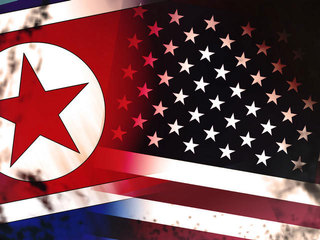
The North Korean nuclear problem has been dragging on for a long time. The new U.S. administration wants to make a breakthrough on the issue, but this is nothing new. Washington needs to find a direction in which to direct such a breakthrough; it must not become confused by superficial appearances.
The Korean nuclear problem appears very simple: Pyongyang is determined to develop nuclear weapons and midrange missiles, even though this has not brought the country any advantages. As long as China shows more strength in making Pyongyang see clearly, even if reluctantly, that it has no choice but to accept Beijing’s requests, it should not be difficult to force Pyongyang to renounce its nuclear weapons, which is tantamount to saving it.
However, in reality, relations among the countries on the Korean Peninsula and across Northeast Asia are already thoroughly tangled up, without even mentioning North Korea. Just look at the China-Japan-South Korea relationship; is this a trivial matter? There are serious conflicting views among these three countries, and at the moment they almost resemble a triangle, with all three of its sides set against one another.
It has to be said that the U.S. bears significant responsibility for the messy situation in Northeast Asia. It did not end the Cold War with the Korean Peninsula; it has pushed, pulled and exerted forced on different countries here; and it has planted too much strategic mistrust. Yet, the U.S. wants North Korea to renounce its nuclear weapons of its own accord, with the pre-condition that North Korea is willing to believe the security promises and plans of a collection of powerful countries.
At the moment, Pyongyang believes nothing and no one. It believes only in the nuclear bomb. It believes possession of this makes it safe, and without it, North Korea would be done for. The outside world sanctions North Korea, but as long as the nation is not completely paralyzed, regardless of whether its own people are starving to death, Pyongyang will probably never surrender.
Before Donald Trump became president, the U.S. government’s method of dealing with North Korea was to continually step up the severity of its sanctions, while at the same time reinforcing its promise of security to South Korea and its military threat to North Korea. That is, its threat of defeating North Korea. Washington has never tried to initiate serious communications with Pyongyang; it has never tried to remove Pyongyang’s concerns and then urge it to renounce its nuclear weapons.
While the U.S. believes this strategy is ineffective, Washington complains that China isn’t cooperating. In fact, China is already severely sanctioning North Korea, and criticizing China is almost akin to scrutiny under a magnifying glass; the biggest advantage of criticizing China in this way is Washington’s unsuccessful attempt to deflect blame aimed at itself.
If Washington really wanted to fight North Korea, it would find its options limited. Continuing to increase the sanctions on North Korea will decrease their effectiveness; in other words, there isn’t much room left to maneuver the lever of increasing sanctions. If the U.S. were to launch military strikes on North Korea, China and Russia believe South Korea will not be able to bear it. Even though Washington is able to grasp the effects of a military strike, it is not able to conceive the extent of counterattacks from North Korea. The U.S.’s biggest promise to Seoul is that of security, but it is very possible that if military strikes against North Korea did take place, Pyongyang would fire back extensively at Seoul in retaliation. And Washington’s prestige would inevitably suffer damage.
If the U.S. really wants to settle the North Korean nuclear problem, it must decrease the number of disagreements it has with the countries surrounding North Korea and facilitate a crucial common understanding. At the same time, the U.S. still needs to establish a line of communication with Pyongyang, to make some room for maneuvering amid the pressure.
China very much wants the North Korean nuclear problem to be solved soon, but no matter what happens, China has a bottom line which it will not hesitate to protect – the security and stability of the northeast. In connection with this, North Korea’s nuclear activities must not pollute northeast China. In addition, North Korea should not move toward turmoil that would create many refugees. A regime hostile to China cannot show up on the opposite bank of the Yalu River, and American troops should not push toward the Yalu’s banks.
If Washington wants to reinforce cooperation to resolve the North Korean nuclear problem, its policy should not conflict with China’s above-mentioned concerns.
In short, the complexity of the North Korean nuclear problem is objective. It is understandable that the U.S. wants to resolve it with quick, decisive action, but it would be better to remain steady and serious, and eventually see positive results. Draw North Korea back to the negotiation table. This can still be considered the most realistic path.

Leave a Reply
You must be logged in to post a comment.